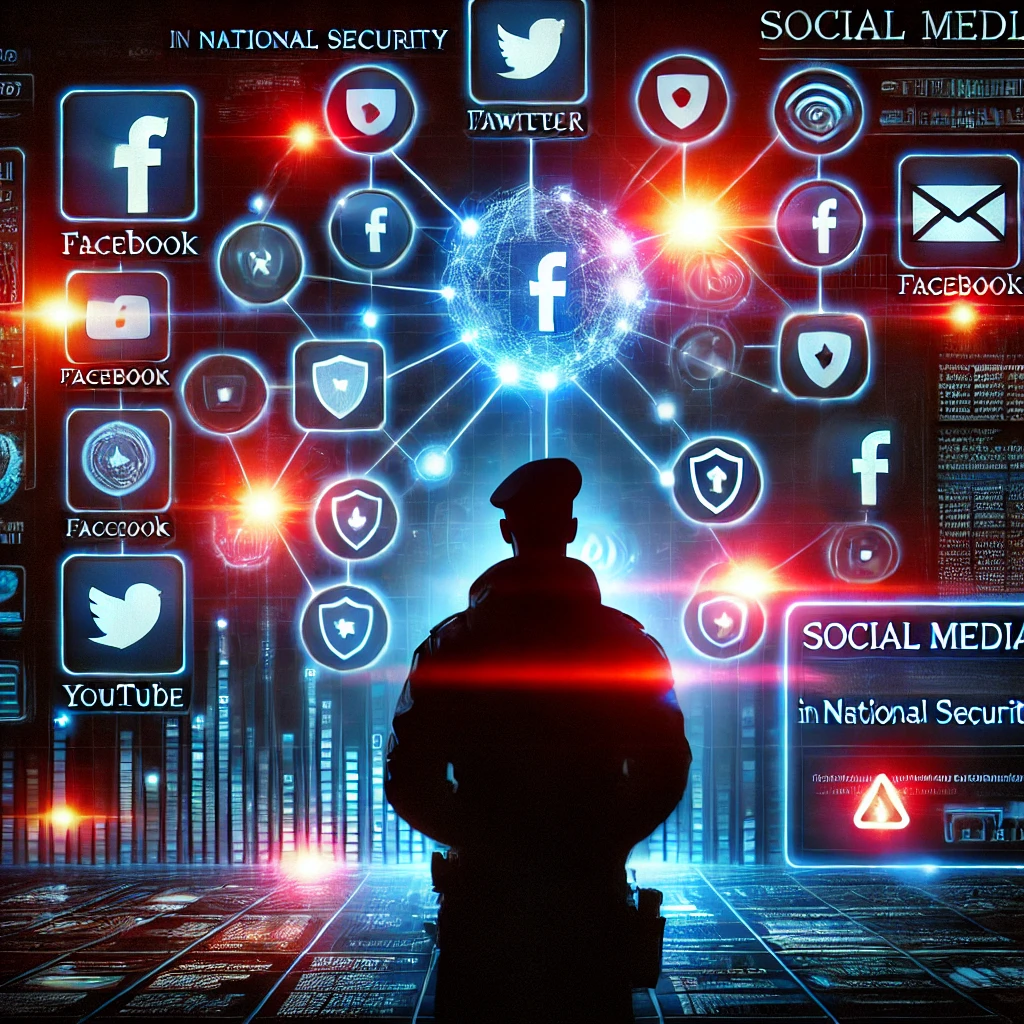Introduction
In the digital age, social media has emerged as a powerful platform influencing global communication, governance, and security. Governments, security agencies, and intelligence organizations increasingly recognize social media’s role in national security. From early warning systems to counterterrorism efforts, social media provides vast opportunities to monitor, analyze, and respond to potential threats. However, its effectiveness in strengthening national security depends on strategic utilization, regulatory frameworks, and technological advancements. This essay critically examines the extent to which social media can be leveraged to enhance national security while addressing associated challenges.
The Role of Social Media in National Security
- Surveillance and Intelligence Gathering
Social media platforms generate massive amounts of data daily. Security agencies leverage this data for intelligence purposes, using advanced algorithms and artificial intelligence (AI) to detect patterns indicating security threats. Platforms like Twitter, Facebook, and Telegram serve as information hubs where intelligence agencies track terrorist activities, criminal networks, and cyber threats. - Early Warning Systems and Crisis Management
Governments and disaster management authorities use social media to issue early warnings about natural disasters, terrorist attacks, and health emergencies. For example, during the COVID-19 pandemic, social media was instrumental in disseminating real-time information to the public and enforcing safety measures. - Counterterrorism and Extremism Prevention
Extremist organizations utilize social media to spread propaganda, recruit members, and coordinate attacks. National security agencies counter these threats by monitoring extremist content, shutting down radical networks, and launching awareness campaigns to prevent radicalization. - Cybersecurity and Digital Warfare
Cyber threats, including hacking, misinformation campaigns, and data breaches, pose significant risks to national security. Social media platforms act as battlegrounds where states engage in cyber warfare, espionage, and misinformation countermeasures. Governments collaborate with tech companies to detect and neutralize cyber threats. - Public Awareness and Psychological Operations (PSYOPS)
Social media enables governments to influence public opinion through strategic communication. Psychological operations (PSYOPS) use digital platforms to shape narratives, counter enemy propaganda, and strengthen national unity in times of crisis.
Case Studies Demonstrating Social Media’s Impact on National Security
- Arab Spring (2011)
The Arab Spring revolutions showcased the power of social media in mobilizing citizens against oppressive regimes. While it empowered democratic movements, it also exposed the vulnerabilities of governments unable to control digital narratives. - U.S. 2016 Elections and Russian Interference
Social media manipulation through misinformation campaigns and bot networks was a significant security concern during the U.S. presidential elections. This incident highlighted the need for cybersecurity measures to safeguard democratic processes. - India’s Use of Social Media in Internal Security
Indian security agencies use social media to combat misinformation, track terror activities, and enhance communication during emergencies like the Pulwama attack (2019).
Challenges and Risks of Using Social Media for National Security
- Misinformation and Fake News
While social media provides real-time information, it also spreads fake news, leading to panic, violence, and national security threats. Deepfake technology further complicates the challenge of distinguishing truth from propaganda. - Privacy and Ethical Concerns
Mass surveillance raises concerns about citizens’ privacy and data security. Governments must balance national security interests with protecting individual rights to avoid authoritarian misuse of social media monitoring. - Cyber Warfare and Foreign Influence
Adversaries exploit social media to launch cyberattacks, manipulate public opinion, and destabilize governments. Countries like China, Russia, and the U.S. are engaged in digital geopolitical conflicts, making cybersecurity a top priority. - Regulation and Censorship Issues
Governments face challenges in regulating social media without curbing freedom of speech. Striking the right balance between security and democratic values is crucial.
Future of Social Media in Strengthening National Security
- AI-Driven Threat Detection
Artificial intelligence and machine learning will play a pivotal role in analyzing social media data for security threats. Automated systems will enhance surveillance capabilities while reducing false alarms. - Collaboration Between Governments and Tech Companies
Stronger partnerships between national security agencies and social media giants like Meta, X (formerly Twitter), and Google will improve digital security measures, content moderation, and cyber threat mitigation. - Public Awareness and Digital Literacy
Educating citizens about misinformation, cyber hygiene, and social media ethics will reduce vulnerabilities to security threats. Governments should invest in digital literacy campaigns to empower users against online manipulation.
Conclusion
Social media is an indispensable tool in strengthening national security, offering surveillance capabilities, crisis management, counterterrorism efforts, and cybersecurity advancements. However, its effectiveness depends on responsible governance, technological innovation, and ethical considerations. While social media can bolster national security, it must be managed carefully to prevent misuse, protect civil liberties, and maintain a balance between security and democracy. The future of national security lies in adaptive strategies that integrate social media intelligence with robust cybersecurity policies, ensuring both safety and freedom in the digital age.





Good responses